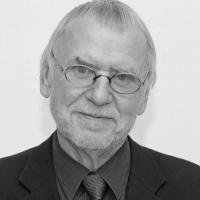Challenges and Opportunities to reaching 100% Renewable Energy
- Event
- Date
-
- Location
- Berlin, Germany
- Speaker
-
Prof. Dr. Miranda Schreurs (Environmental Policy Research Centre and German Advisory Council on the Environment)
General conditions for a further expansion of renewable energy in Germany are favorable: rather ambitious long-term strategic goals were set; a number of measures to achieve them were implemented; and the phase out of the use of nuclear energy was agreed upon. Remains to see what challenges will arise along the road towards a shift to 100 % renewable energy? What can other countries learn from this development? In honor of a high-ranking delegation of 21 Saudi students visiting Germany, the Ecologic Institute hosted a Riverside Chat to discuss these questions on 18 November 2011.
The event featured the outstanding experts Prof. Dr. Miranda Schreurs, Director of the Environmental Policy Research Centre and Professor of Comparative Politics at the Freie Universität Berlin and member of the German Advisory Council on the Environment, as well as Dr. Hans-Joachim Ziesing, Senior Policy Advisor at Ecologic Institute and Managing Director of the "Working Group on Energy Balances". The session was moderated by R. Andreas Kraemer, Director of Ecologic Institute. The lively and enriching discussion between Saudi-Arabian and German participants about common objectives in the German and Saudi-Arabian energy and climate policy in view of global challenges made this event unique.
The Riverside Chat was integrated in a visitors programme sponsored by the German Federal Foreign Office, which is part of public diplomacy and is meant to strengthen the German-Saudi relations. The students came to Germany to learn about the German experience with renewable energy, energy efficiency, climate protection and the nuclear phase out.
In her presentation, Prof. Dr. Miranda Schreurs explained how the German energy system has transformed over the years – from a coal and nuclear based supply to a system with a high share of energy from renewable sources. She pointed out the decisive triggers to this development, including especially the nuclear catastrophes in Chernobyl and Fukushima. The increase of the renewable energy share has been encouraged and facilitated by an adequate regulatory framework (Germany Renewable Energy Act with its feed-in tariff) but also via strong support from the Germany society.
Dr. Hans-Joachim Ziesing’s contribution to the debate was, using facts and figures, a quantitative account of the energy experience. He acknowledged the German success story with renewable energy, all the while highlighting the challenges ahead to meet the German 2050-targets. An ambitious energy efficiency policy, focusing both on the demand and supply side, is a key element of a comprehensive energy system transformation. This field’s potential, argues Dr. Hans-Joachim Ziesing, has not yet been sufficiently explored in Germany. Moreover, he stressed the importance of international cooperation for climate change policy in general and in reference to the upcoming climate negotiations in Durban in December 2011.
These two talks were followed by a discussion, which was shaped by a number of specific questions of the Saudi-Arabian students. The following issues have been addressed:
- How could an ambitious energy efficiency policy be designed?
- What is the future of Photovoltaic in Germany?
- How is thermal energy promoted in Germany?
- What is the role of CCS in the German energy policy?
- From the point of view of the two speakers, what is the key element of the German energy transformation and could it apply in the future transformation of the energy sector in Saudi-Arabia?




